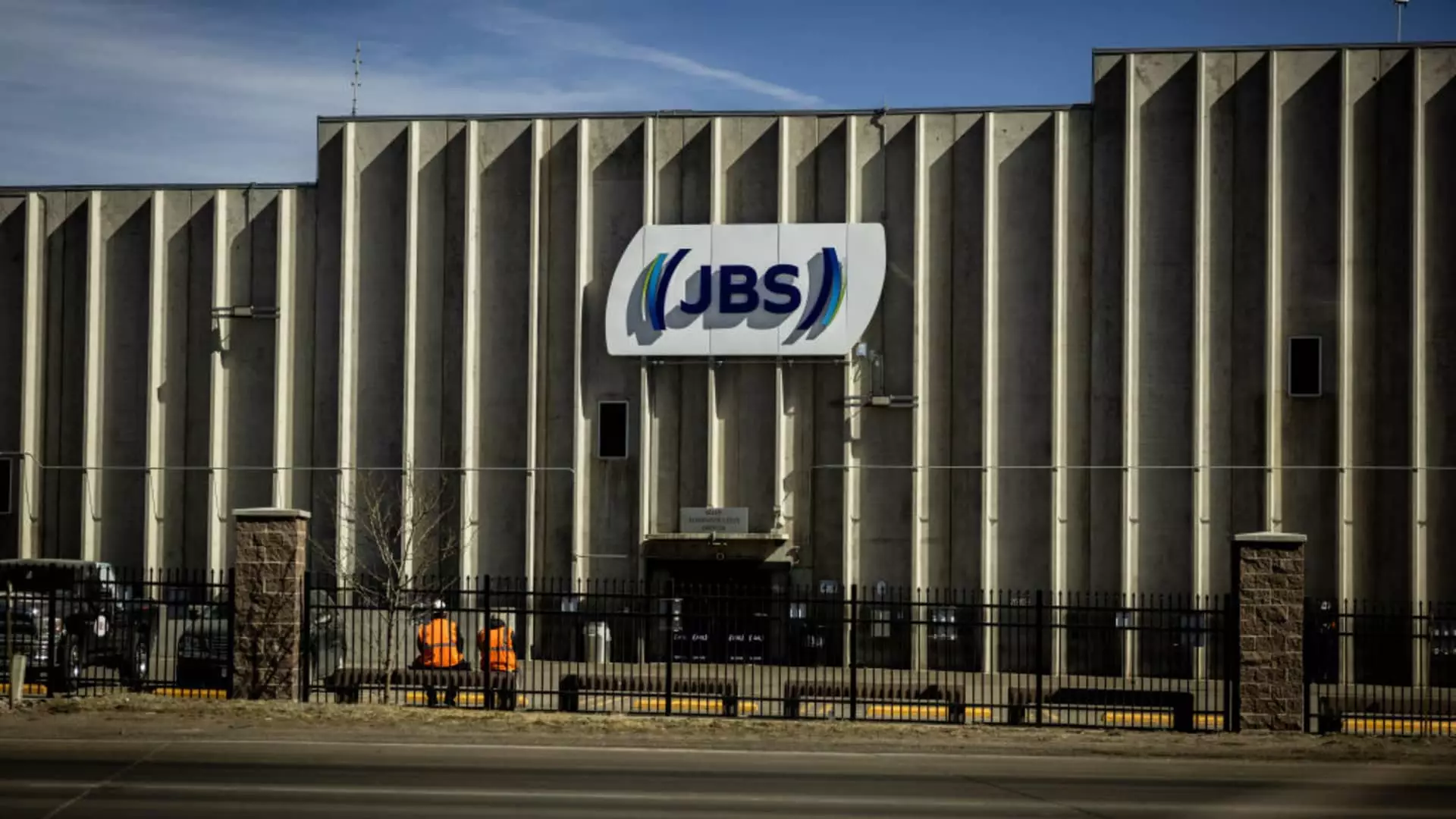On a seemingly ordinary Friday, Brazilian meat conglomerate JBS made waves in the financial world with its U.S. stock market debut. Priced at $13.65 per share, this move catapulted the company’s valuation to an astounding $30 billion, eclipsing its closest rival, Tyson Foods, which clings to a market capitalization of about $19.82 billion. While JBS’s entry into the New York Stock Exchange marks an expansive ambition, it is a decision colored by a landscape fraught with controversy and ethical quandaries. The company, which had previously been delisted from the Sao Paolo Exchange, executed a dual-listing strategy to broaden its financial horizons. However, instead of a grand celebration, the delayed debut highlights the chaotic nature of corporate governance in the modern age.
Financial Giant or Ethical Pariah?
At first glance, JBS epitomizes success in the meatpacking industry, boasting over $77 billion in revenue within the last year alone. The sheer scale of operations across Brazil, the U.S., and Australia solidifies its status as the world’s largest meat producer. Yet, while the numbers impress, the underside of this corporate entity tells a troubling tale. With incidents of bribery, corruption, and ethical violations littering its history, one has to wonder: can a company with such a tainted past truly be trusted? From settling multi-billion dollar fines for corruption to employing tactics that blatantly ignore environmental concerns—such as allegations linking them to the illegal cattle trade in the Amazon—JBS represents a paradox of prosperity built on questionable ethics.
A Legacy of Scandal
The journey of JBS has not been a fairytale. Founded over seventy years ago, its potential was exploited through a spectrum of scandals that wrecked reputations, not just in Brazil but internationally. In 2017, the Batistas, the family behind JBS, were embroiled in a scandal that led to a staggering $3.2 billion in fines for bribery. Although they managed to skirt jail time by cooperating with authorities, their return to the boardroom raises eyebrow after significant allegations resurfaced. In the larger context, JBS’s financial triumphs feel eerily juxtaposed against a backdrop of moral failures and unaccountability. It poses an uncomfortable question—what does it mean for a corporation to obtain such financial success while repeatedly courting scandal?
The Dichotomy of Corporate Influence
Throughout its tumultuous journey, JBS has displayed an uncanny ability to cultivate connections, notably in political circles. Its financial support for Donald Trump’s inauguration committee underscores a strategic maneuver in a political landscape often filled with quid pro quo. With a donation totaling $5 million, JBS demonstrated not just its financial clout, but also a desire for favorable regulatory treatment. This intertwining of corporate and political interests is a testament to the ideological rift between fiscal responsibility and ethical governance, flying in the face of a genuinely transparent capitalist market. Left unchecked, such maneuvers threaten the very fabric of democratic processes, revealing the often-hidden alliances that fuel corporate governance.
Balancing Growth with Responsibility
The approval of JBS’s request to list on the New York Stock Exchange by the SEC, albeit amidst contentious opinions from lawmakers, raises critical dialogues surrounding corporate accountability. How can we reconcile a company’s growth trajectory with its ethical implications? As citizens and stakeholders, we must demand not just growth but integrity, holding corporations accountable in a world where profits often overshadow principles. JBS’s rise, punctuated by financial successes, must be scrutinized through the lens of its actions and their consequences. It’s a clarion call for a reassessment of what it means to be a responsible corporate citizen.
The Road Ahead
As JBS settles into its new role within the U.S. financial system, it faces a crucial crossroads. The question of whether it can redirect its legacy from one marred by scandals to one defined by ethical stewardship remains pivotal. To thrive in an increasingly scrutinizing environment, JBS must prioritize transparency and accountability, not merely seek profit at the expense of public trust. With the promise of a dual listing on international markets comes the obligation to uphold standards well beyond mere compliance—a challenge that could define the next chapter of one of the world’s most controversial corporate giants. It’s time to demand more than corporate performance; the stakes now compel an expectation of ethical performance as well.

